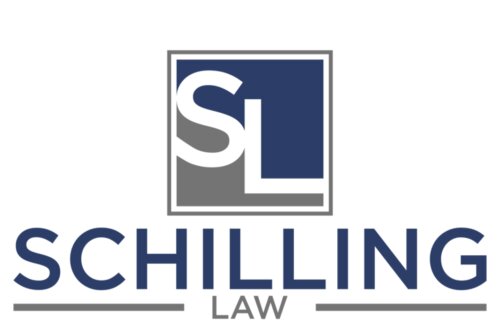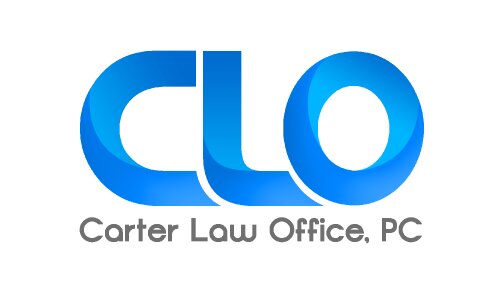Best Conveyancing Lawyers in Kansas
Share your needs with us, get contacted by law firms.
Free. Takes 2 min.
Free Guide to Hiring a Real Estate Lawyer
Or refine your search by selecting a city:
List of the best lawyers in Kansas, United States
About Conveyancing Law in Kansas, United States
Conveyancing is the legal process of transferring ownership of real property from one party to another. In Kansas, conveyancing typically involves preparing, reviewing, and executing legal documents such as deeds, contracts, and settlement statements. This process ensures that the rights to the property are properly transferred and that both buyer and seller fulfill all legal requirements. Conveyancing is a key aspect of real estate transactions, regardless of whether the property is residential, commercial, or agricultural.
Why You May Need a Lawyer
There are many situations where having a lawyer to assist with conveyancing in Kansas becomes necessary or highly recommended. Some common scenarios include:
- Buying or selling a home or other real estate.
- Refinancing a property with a new mortgage lender.
- Transferring property due to death, divorce, or gift.
- Addressing complex issues such as title defects, boundary disputes, or easements.
- Navigating short sales, foreclosures, or tax liens.
- Ensuring proper disclosure and compliance with local, state, and federal laws.
- Interpreting complicated legal documents.
- Resolving tenancy or co-ownership arrangements.
A lawyer brings valuable expertise to protect your rights, identify potential risks, and help you avoid costly mistakes during any stage of the conveyancing process.
Local Laws Overview
Conveyancing in Kansas is primarily governed by state statutes, common law principles, and local regulations. Here are some key aspects that are especially relevant:
- Recording Requirement: Kansas law requires deeds and other conveyance instruments to be recorded at the county Register of Deeds office where the property is located. This recording protects against future disputes and provides public notice of ownership.
- Types of Deeds: Common types include warranty deeds, quitclaim deeds, and special warranty deeds. Each provides different levels of title protection to the buyer.
- Title Examination: Buyers typically conduct a title search to ensure the seller has clear title and to identify any liens, easements, or encumbrances.
- Seller Disclosure: Kansas law requires sellers to disclose known material defects in the property. Failure to do so can result in liability.
- Transfer Taxes: Kansas does not impose a state transfer tax on real estate sales, but local fees and documentary stamps may apply.
- Homestead Rights: Kansas provides significant protections for homestead property, affecting certain sales and foreclosures.
- Closing Requirements: Closings can be conducted by attorneys, title companies, or real estate agents, but legal oversight is prudent for risk mitigation.
Frequently Asked Questions
What is conveyancing and who is involved?
Conveyancing is the legal transfer of property ownership. Common participants include the buyer, seller, real estate agents, title companies, and sometimes attorneys.
Is hiring a lawyer required for real estate transactions in Kansas?
Kansas does not mandate attorney participation in real estate transactions, but lawyers are highly recommended for complex or high-value transactions to protect your interests.
What is the difference between a warranty deed and a quitclaim deed?
A warranty deed guarantees the seller has clear title and the authority to transfer the property, while a quitclaim deed simply conveys whatever interest the seller has without guarantees.
What disclosures are required from the seller?
Kansas law requires sellers to disclose material defects, such as structural problems or water damage, that might affect property value or safety.
How is the title search conducted?
A title search is performed by reviewing public records to confirm the seller’s legal ownership and to identify any liens, easements, or restrictions on the property.
Who pays closing costs in Kansas?
Closing costs are typically negotiated between buyer and seller. Buyers often pay for title insurance, inspections, and lender fees, while sellers may pay for the agent commission and deed preparation.
Are there property transfer taxes in Kansas?
Kansas does not impose a state-level real estate transfer tax, but local recording fees may apply. Always check with your county for exact costs.
How are disputes over property boundaries resolved?
Boundary disputes can be addressed through surveys, negotiation, mediation, or, if necessary, litigation in Kansas courts.
What happens if defects in title are found after closing?
Title insurance can protect buyers against undiscovered defects. Without insurance, buyers may need to seek legal recourse against the seller or other parties responsible.
What is the role of a title company versus a lawyer?
A title company handles title searches, insurance, and escrow, but cannot provide legal advice or draft customized legal documents. A lawyer offers legal counsel and can address specific legal issues.
Additional Resources
For further information or assistance, the following resources may be helpful:
- Kansas Bar Association - Offers lawyer referral services and educational materials.
- Kansas Judicial Branch - Provides access to statutes, forms, and information on court procedures.
- Kansas Real Estate Commission - Regulates real estate professionals and maintains consumer resources.
- Local Register of Deeds Offices - Handles property recording and provides local guidance.
- Homeowner and consumer advocacy organizations - Offer general information on home buying and ownership.
Next Steps
If you need assistance with conveyancing in Kansas, consider the following steps:
- Gather all relevant documents related to the property and transaction.
- Contact a qualified real estate attorney with experience in Kansas conveyancing.
- Request an initial consultation to discuss your situation and understand your legal options.
- Work with your lawyer to conduct a title search, prepare and review contracts, and ensure proper recording of deeds and documents.
- Stay in regular contact with your attorney and other parties to keep the process on track.
- After closing, confirm that all legal requirements have been fulfilled and retain copies of all documents for your records.
Professional legal guidance can help you navigate the complexities of conveyancing and ensure a successful property transfer in Kansas.
Lawzana helps you find the best lawyers and law firms in Kansas through a curated and pre-screened list of qualified legal professionals. Our platform offers rankings and detailed profiles of attorneys and law firms, allowing you to compare based on practice areas, including Conveyancing, experience, and client feedback.
Each profile includes a description of the firm's areas of practice, client reviews, team members and partners, year of establishment, spoken languages, office locations, contact information, social media presence, and any published articles or resources. Most firms on our platform speak English and are experienced in both local and international legal matters.
Get a quote from top-rated law firms in Kansas, United States — quickly, securely, and without unnecessary hassle.
Disclaimer:
The information provided on this page is for general informational purposes only and does not constitute legal advice. While we strive to ensure the accuracy and relevance of the content, legal information may change over time, and interpretations of the law can vary. You should always consult with a qualified legal professional for advice specific to your situation.
We disclaim all liability for actions taken or not taken based on the content of this page. If you believe any information is incorrect or outdated, please contact us, and we will review and update it where appropriate.
Browse conveyancing law firms by city in Kansas
Refine your search by selecting a city.















